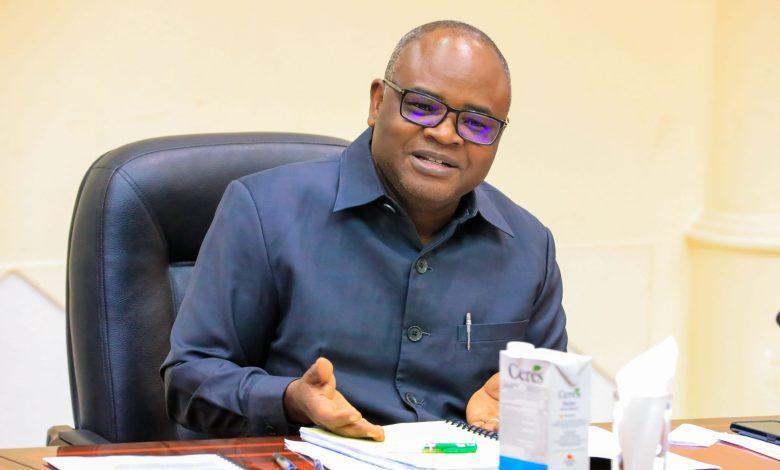Africa-Press – Tanzania. MINISTER of State in the President’s Office (Planning and Investment), Professor Kitila Mkumbo, has said that Dira 2050 (Vision 2050) is a people-driven vision, shaped by public input and designed for full national ownership and implementation.
Tanzania aims to achieve a trillion-dollar economy by 2050, with a projected per capita income of 7,000 US dollars (about 18m/-).
Speaking recently on a televised panel discussion hosted by TBC1, Prof Mkumbo divulged the inclusive nature of the vision’s preparation, which involved widespread citizen participation.
“This process has collected more views than any other policy initiative in our history, not even the Constitution Commission came close,” he said. “It’s a vision of the people, not just the government. Everyone must see themselves in it. Otherwise, it becomes just another government document.”
About 80 per cent of the participants consulted during the process were youth aged between 15 and 35, reflecting the country’s youthful demographic.
“The design is solid, ambitious but achievable,” he added.
Prof Mkumbo also noted that implementation of the expiring Vision 2025 had exceeded 70 per cent in key social sectors, including healthcare, education, and electricity access, though economic indicators fell slightly short of targets.
If fully implemented, Dira 2050 will propel Tanzania from lower middle-income to upper middle-income status.
It envisions a vibrant, inclusive economy, with citizens playing a central role.
Political analyst Dr Richard Mbunda proposed Vision document be simplified enough to fit into one’s pocket.
“That would help people carry it everywhere, literally and figuratively,” he said.
He stressed the importance of economic self-reliance, particularly through empowering local companies and industries to play leading roles in national development.
An economist, Dr Bravious Kahyoza said there is an urgent need for massive investment in energy.
He projected Tanzania would require 60,000 megawatts of power by 2050 to sustain a trillion-dollar economy.
“To reach that, we must attract private sector investment through Public-Private Partnerships (PPPs),” Dr Kahyoza said.
He compared Tanzania’s potential to South Africa, which has approximately a 400 billion US dollar economy and over 50,000 megawatts in energy capacity.
He noted that Tanzania has diverse energy sources, ranging from hydro to wind, solar, geothermal, gas, and even nuclear, which can support the goal if leveraged strategically. He estimated private energy sector financing needs at over 600tri/- to reach the energy targets.
Dr Kahyoza also underscored the importance of food sovereignty and value addition in agriculture to meet macroeconomic goals.
Development analyst, Dr Sylvester Jotta of the Saint Augustine University of Tanzania (SAUT) called for strong, well-coordinated institutions to support Small and Medium Enterprises (SMEs).
“We need a full-fledged ministry dedicated to SMEs,” Dr Jotta urged.
The implementation of Dira 2050 will begin on July 1st, next year, following the development of the long-term perspective plan and a new five-year development strategy.
This will mark the official end of Vision 2025, which began in 2000 under President Benjamin Mkapa and saw Tanzania attain lower middleincome status in 2020.
Key targets of Dira 2050 seek to ensure Tanzania to become Africa’s top food producer and rank among the global top 10, life expectancy to rise from 68 to 75 years, 90 per cent reduction in child stunting, teen pregnancies to be significantly reduced and universal access to basic education, with 25 per cent of the population attaining tertiary education.
Other targets include to ensure energy consumption to reach 3,000 kWh per capita per year, digital literacy to reach 70 per cent, with 80 per cent of government services available online and at least 50 per cent of citizens to hold decent jobs in the formal sector.
Prof Mkumbo said that Dira 2050 must not only reflect the aspirations of the people but be actively owned and driven by them.
For More News And Analysis About Tanzania Follow Africa-Press







